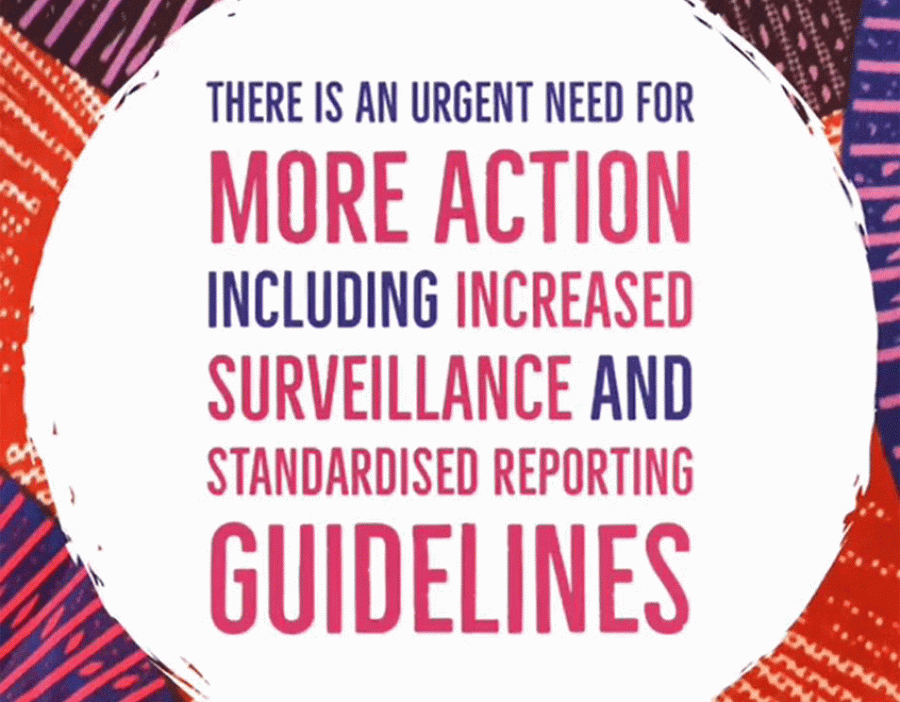Better reporting and improved surveillance needed to address neonatal infections in sub-Saharan Africa
18 September 2019 London School of Hygiene & Tropical Medicine London School of Hygiene & Tropical Medicine https://lshtm.ac.uk/themes/custom/lshtm/images/lshtm-logo-black.png
Improved surveillance is required to tackle the major sub-Saharan Africa health burdens of hospital-acquired neonatal infections and antimicrobial resistance, according to new research published in The Lancet Infectious Diseases.
Serious bacterial infections in newborn babies - sepsis, meningitis, and pneumonia - are a leading cause of the 2.5 million annual newborn deaths. Countries in sub-Saharan Africa have the highest burden of serious neonatal infections in the world, but there is an important knowledge gap regarding the exact causes in these countries because diagnostic tools are rarely available or implemented.
Led by the Medical Research Council Unit The Gambia at the London School of Hygiene & Tropical Medicine (LSHTM), the study is the largest systematic review of the causes of neonatal infection and AMR from sub-Saharan Africa. It found that since 2008, Staphylococcus aureus, Klebsiella species, and Escherichia coli have remained the most common reported causes of neonatal sepsis, the majority of Staphylococcus aureus reported from West Africa.
The main reported causes of neonatal meningitis are Group B Streptococcus, Streptococcus pneumoniae, and Staphylococcus aureus. Antibiotic resistance profiles for most of these pathogens demonstrated a high degree of resistance to the first- and second-line antibiotics recommended by the World Health Organization – namely ampicillin, gentamicin, and third generation cephalosporins such as ceftriaxone and cefotaxime.
The burden of neonatal deaths is unevenly distributed across sub-Saharan Africa, being higher in West and Central Africa than East and Southern Africa, but similar data regarding the differences in the regional distribution of bacterial pathogens causing serious neonatal infections and antimicrobial resistance (AMR) are lacking.
The authors reviewed the available literature, 151 studies comprising data from nearly 80,000 newborns from 26 countries, to draw attention to the bacterial pathogens that caused neonatal infections, and the extent of antimicrobial resistance in sub-Saharan Africa over the past decade (2008 – 2018), focusing on regional differences. The paper also examined the quality of reporting among the reviewed studies, according to the Strengthening the Reporting of Observational Studies in Epidemiology for New-born Infection (STROBE-NI) checklist.
Data was available from only 26 of the 48 countries in sub-Saharan Africa. There was wide variability in the reporting and recording of research findings across the identified studies. The data shows that the pathogen profile in sub-Saharan Africa is different from that found in high-income countries, with sub-regional geographical variation in the distribution of specific bacteria between and within regions.
The authors say more population-based neonatal infection studies and improved routine surveillance are needed to improve clinical care, plan health systems approaches, and address AMR. Future studies should be reported according to standardised reporting guidelines, such as STROBE-NI, to aid comparability and reduce research wastage.
Dr Uduak Okomo, Clinical Research Fellow in Maternal/Neonatal Health at the MRC Unit The Gambia at LSHTM, said: “We need reliable national and regional data to track progress on reducing the burden of neonatal infections and AMR across sub-Saharan Africa. We hope that our review will act as a springboard for countries and regions to establish surveillance databases and define research priorities.”
In the light of these findings, it is evident that a ‘one size fits all’ approach is inadequate to address the burden of neonatal infections and AMR in sub-Saharan Africa. Infection treatment guidelines and antimicrobial stewardship should be tailored to local contexts, with the implementation of simple, effective and affordable context-specific interventions.
Professor Joy Lawn, Director of the Centre for Maternal, Adolescent, Reproductive, & Child Health (MARCH) at LSHTM, said: “This is the first review to show African specific findings on severe neonatal infections - which organisms and where? Almost all the data are from hospitals and now most of Africa's new-borns are born in hospital. There are shocking rates of hospital acquired infections with serious organisms and over 68% of organisms tested were resistant to first line antibiotics, which will be life threatening to the almost 40 million babies born each year in Sub Saharan Africa.”
Professor Beate Kampmann, Theme Leader for Vaccines and Immunity at the MRC Unit The Gambia at LSHTM said: “Serious infections are the major cause of death in in newborn babies in low resource settings. Dr Okomo’s systematic review gives us a comprehensive picture of the infectious agents involved in SSA. What matters most for neonatal survival is that we can improve the diagnosis of these serious infections and promptly treat them with adequate drugs.”
LSHTM's short courses provide opportunities to study specialised topics across a broad range of public and global health fields. From AMR to vaccines, travel medicine to clinical trials, and modelling to malaria, refresh your skills and join one of our short courses today.